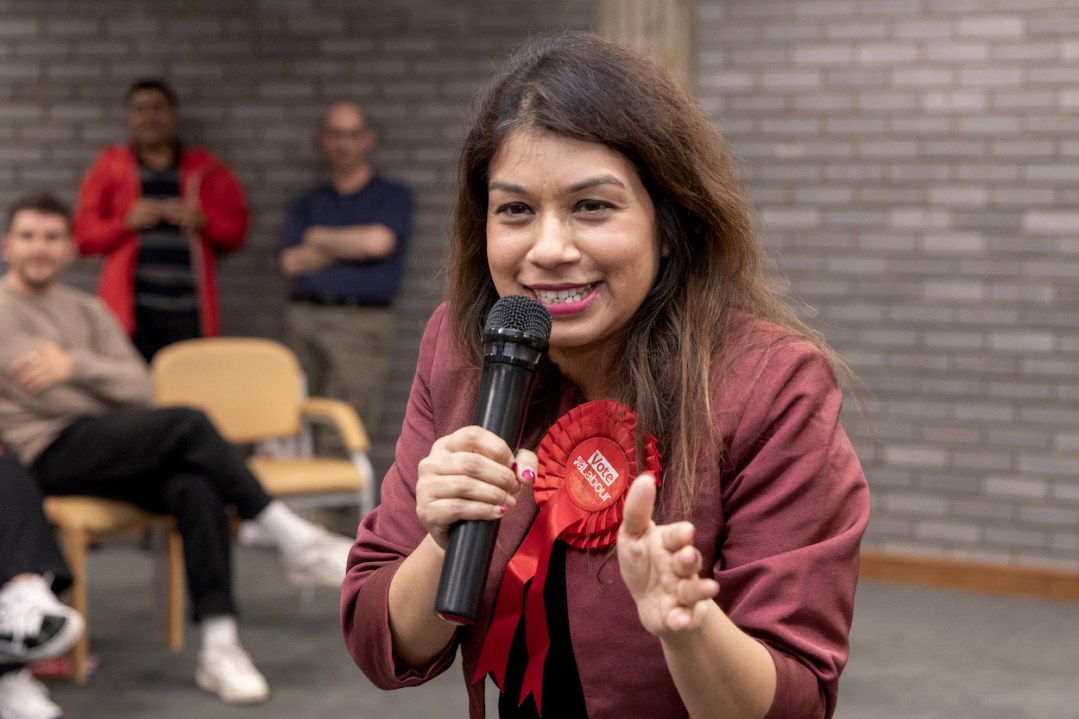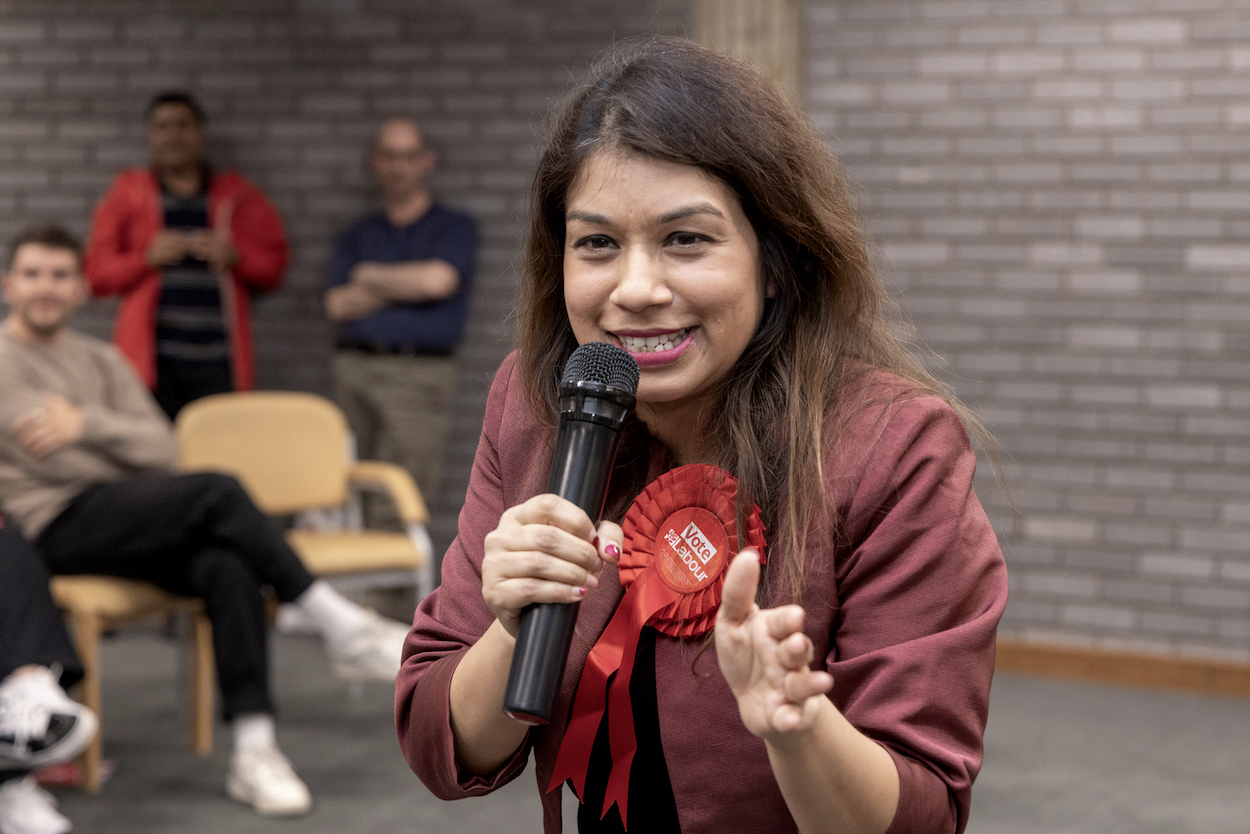The corruption trial of Tulip Siddiq formally commenced in Bangladesh on Wednesday. Among other allegations linked to £3.9 billion worth of embezzlement, the Bangladeshi-origin Labour MP has been accused by the Anti-Corruption Commission of securing luxury property for her family in Dhaka, using her relationship with the country’s former prime minister Sheikh Hasina, who was ousted and fled the country last August following mass protests against her rule. Prior to her election as the Labour MP for Hampstead in 2015, Siddiq, the granddaughter of Bangladesh’s founding leader Sheikh Mujibur Rehman, had been a spokesperson of her aunt Hasina’s Awami League in the UK even joining the former Bangladeshi prime minister on a trip to sign an arms deal with Russian president Vladimir Putin in Moscow.
Even so, Siddiq has maintained that her family links, which are now the focus of the corruption allegations that she denies, have actually ‘caused problems’ for her, not least because the Bengali diaspora keeps asking for favours. She has claimed that having heritage rooted in Bangladesh, which she now describes as a ‘foreign country’, has been a challenge, given the ‘racist’ attitudes around her. Siddiq has frequently spoken about the rise of populism and financial inequality in the West, while her family has been subjugating the masses and overseeing the concentration of capital among the richest in Bangladesh.
Regardless of whether the corruption trial in Dhaka is well-founded, or politically motivated as she insists, Siddiq’s case illustrates the hypocrisy of the South Asian elite that come from privileged backgrounds but prefer to lecture on the inequalities in the West.
The families of the feudal leaders of all three major Pakistani political parties, for instance, have been raised or educated in the same West that they avow hostility against. Imran Khan’s British sons are currently campaigning for his release in the same US that their imprisoned father has long accused of plotting against him and his country. Oxford-educated chairman of Pakistan’s historically left People’s Party, Bilawal Bhutto Zardari, talks about ‘Islamophobia’ in the West, but has never spoken out against the spate of forced conversions of under-aged Hindu girls under his party’s rule in Sindh province. Bilawal’s cousin, the academic and author Fatima Bhutto, who studied and spends much of her time in the ‘racist’ West that she accuses of being responsible for the genocide and apartheid in Gaza, rarely has much to say about the Ahmadis or Baloch whose persecution her grandfather, Zulfikar Ali Bhutto, laid the foundation of.
Like the Pakistani left, the Indian left too is dominated by the elite that prefer to focus on the ailments of the West. London-born Shashi Tharoor, a member of the traditionally left Indian National Congress, who has written and spoken extensively on the evils of British colonialism, even arguing that the UK owes India reparations, has recently been leading delegations defending the Hindu nationalist Bharatiya Janata Party’s security policy in the region which ascertains India’s stranglehold over Kashmir. Tharoor describes the ongoing US tariff negotiations as being akin to ‘colonialism’, and continues to find time to denounce the British Raj while being officially tasked with defending India’s hegemonic geopolitical strategy, which includes dictation and intervention even in South Asian states beyond Pakistan.
These self-proclaimed left-leaning convictions of the South Asian elite are not only duplicitous but more often than not unravel as soon as there is any personal cost to be paid, as evidenced by just how quickly Tulip Siddiq abandoned the Bangladeshi origin that had for a long time used earned her points inside the Labour party. Similarly, Siddiq’s fellow Labour MP, Rushanara Ali, the first British Bangladeshi elected to parliament, vociferously deploys ‘pro-Palestine’ rhetoric, but abstained from the Gaza ceasefire vote in 2023 in line with the party whip. Zulfikar Ali Bhutto Jr speaks of the racism he faced in British schools, and undertakes queer activism in the West, but doesn’t mention Islamisation, and the correlated queerphobia, initiated by his grandfather whom he is named after, owing to his political ambitions in Pakistan. The disappearing pronouns from the bios of many amid the reversal of gender ideology in Western policymaking, and the lowered decibels in ‘pro-Palestine’ activism at US campuses during the ongoing crackdown, underlines how the South Asian-origin left in the West is devoid of actual conviction.
Indeed, much of the South Asian left’s narrative-building is a parroting of the western left, which entails trashing their own states and its majority community, while rigidly embracing their minority identities that might check the diversity eye test. Zohran Mamdani’s success in winning the Democratic nomination for this year’s New York City mayor election, founded on a scathing critique of everyone but the community he most identified with, is illustrative of the support the left offers to members of the minority community that can showcase the least introspection. Perhaps the case that best highlights the absolute abandonment of self-reflection on the left is Rushanara Ali evicting her tenant while serving as the homelessness minister. She had to resign from the post last week.
If the left is to survive its ongoing global crisis, it needs to start backing candidates that go beyond mimicking the so-called postcolonial discourse that focuses solely on the West, and exhibit a willingness to offer similar scrutiny for the minorities they identify with, as they would with the majority. This is especially true for those hailing from South Asia, where religious majoritarianism is on the rise, and where the advent of colonialism long preceded the Brits.








Comments